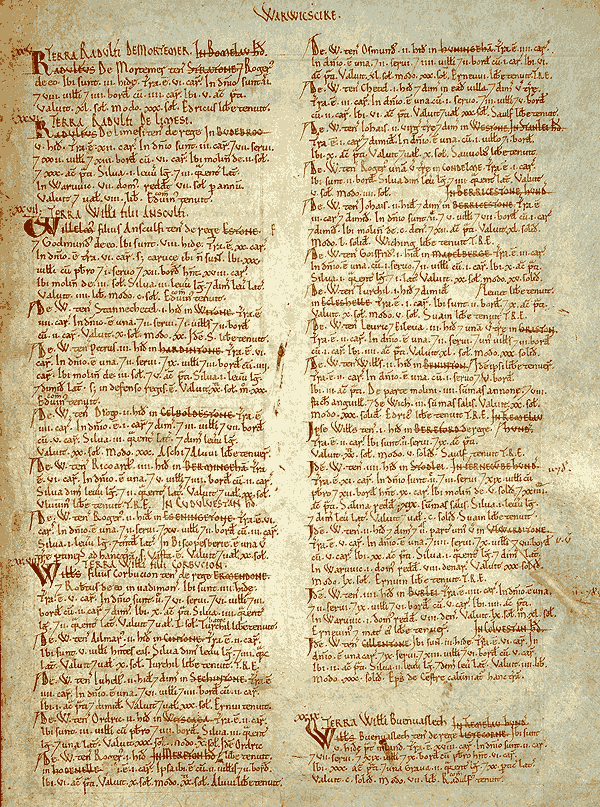The Domesday Book

Shortly after William the Conqueror captured England he granted most of the lands that had been in the hands of English nobility to his followers, as he had done for William de Noers. He also ordered twenty years later, in 1085, that a census be taken of all his newly acquired lands. It was the most extensive census that had ever been taken of any lands and remains to this day one of the most complete records of its kind. The census took about a year to complete. (see “Domesday Book” (2023))
The census takers were ordered to list the name of the location, who held it before 1066 and who held it in 1085. In addition the size of the manors was recorded, how many ploughs, villagers, cottagers, slaves, freemen, and socmen (another distinction of freeman). The amount of woodland, meadows, and pasture was listed, along with the numbers of mills and fishponds, and whether property was added to or taken away from the original structure before the conquest was included. The total value of the land before 1066 and again at 1085 was enumerated.
And finally it was determined how much each freeman or socman had before 1066, when William gave it, and in 1085 when the census was taken.
The King wanted to know what he had and who held it. The commissioners therefore listed lands in dispute, since the record, known as “The Domesday Book”, was not just a tax assessment.

To the King’s grandson, Bishop Henry of Winchester, its purpose was that every “man should know his right and not usurp another’s”, as it was the final authoritative register of rightful possession; “the natives call it Domesday Book, by analogy from the Day of Judgement”. For this reason it was carefully arranged by counties, and by landholders with the counties, “numbered consecutively…For easy reference”.
Very many holdings were described by the Norman term “manerium” (manor), which varied greatly in size and structure, from tiny farmsteads to vast holdings.
In addition many lords exercised their own jurisdiction and other rights, which were termed “soca”, and from which the term “socman” comes. A freeman who was known as a socman held the rights of judgement independent of the King.
Bibliography
“Domesday Book.” 2023. Wikipedia; Wikimedia Foundation. 2023. https://en.wikipedia.org/w/index.php?title=Domesday_Book&oldid=1164699047.